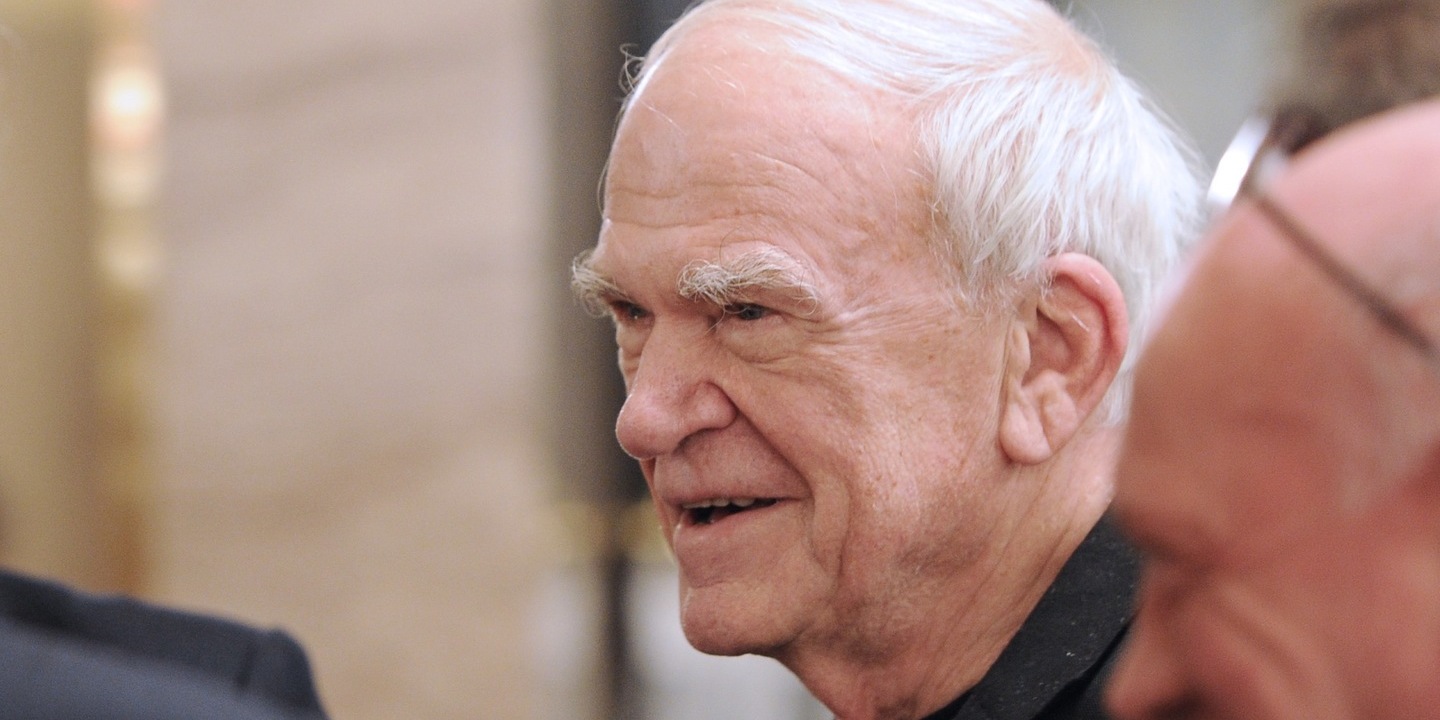
Writer Milan Kundera has died at the age of 94, advances the state broadcaster of the Czech Republic, quoted by AFP. Born Czech, and French since 1981, the author of “The Unsustainable Lightness of Being” (1984), a sarcastic painter of the human condition, belonged to the French Academy, did not receive the Nobel Prize in Literature, but is considered one of the greatest contemporary authors. ageing”.Milan Kundera liked to talk about her work before talking about it. His last appearance on television dates back to 1984 and the last interview with a journalist was in 1986. At the end of 2019, Milan Kundera regained the Czech nationality he had lost when he left communist Czechoslovakia to live in France in the 1970s.Not taking the world seriouslyBorn in Brno, in what is now the Czech Republic, on April 1, 1929, destined [como os seus pais] to a career as a musician, Milan Kundera was a music lover. His first texts, poems written in Czech, were composed as sonatas. Close to the communist regime, Kundera left without, however, becoming a dissident. 1950, suggesting that the writer denounced one of his fellow citizens during the Stalinist period. Milan Kundera did not reply. “It is difficult to forgive a great and illustrious man. But even less so if he is silent,” wrote playwright Yasmina Reza in an article published by Le Monde. Writers such as Gabriel Garcia Marquez and Philip Roth came to the defense of the author. When he was still Czech, Milan Kundera published two novels, “A Brincadeira” (1965) and “O Livro dos Amores Risíveis” (1968), texts that make a bitter balance the political illusions of the Prague coup generation, which in 1948 allowed the communists to come to power. Kundera, who was blacklisted in his country after the Prague Spring, went into exile in France with his wife in 1975. Naturalized French in 1981, chose French as the language of writing to mark the break with his native country, which in 1978 withdrew his nationality (Prague proposed to return it last year). In France, he published “A Valsa do Adeus”, “O Livro do Riso e do Esquecimento” and, in 1984, what some consider his masterpiece, “The Unsustainable Lightness of Being”, a romance of love and an ode to freedom, at the same time serious and casual, whose The theme is the human condition.The book was adapted into a movie in 1988 by the American Philip Kaufman, with Juliette Binoche and Daniel Day-Lewis.An analyst of his own work, he signed the essay “The Art of Romance” in 1986, where he explains that “by entering the body of the novel, meditation changes the essence. Outside the novel, we find ourselves in the field of affirmations, everyone is sure of their word: a politician, a philosopher, a doorman… In the territory of the novel, we do not affirm ourselves: it is the territory of play and hypotheses”. In “A Festa da Insignificancia”, the novelist, through the voice of one of the characters, continues his reflection on the pattern of his work: “We have understood for a long time that it is not possible to reverse this world, neither to reformulate it nor to halt its hapless rush forward. There is only one possible resistance: not taking it seriously”.